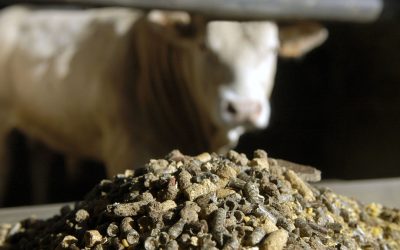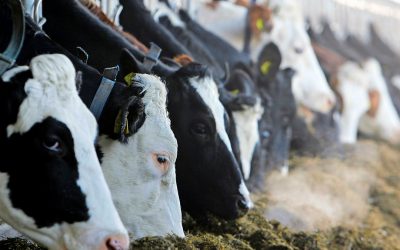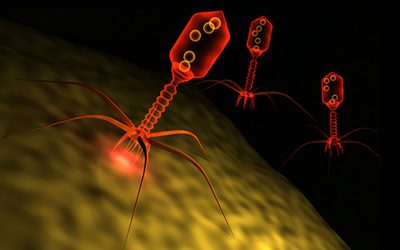Safe and effective use of AGPs
Responsible use of antimicrobial growth promoters can still help to advance public health, food safety, animal health and welfare. The question however remains to what extent the use of antimicrobials in food producing animals may result in antimicrobial resistance.
This resistance can be transmitted to humans through the food supply chain and lead to adverse health consequences.
Despite this, the South African Animal Feed Industry through its official body (AFMA) still supports the use (as long as it is responsible) and sound science as the basis for decision-making and policy development regarding antibiotics in food animal production.
The continuous use of antimicrobial products in countries such as South Africa is fortunate as livestock food production in developing countries could be uneconomically until cost effective natural alternative growth promoters become available. Important though is how the quality aspects of such products are evaluated and monitored to ensure that its use stays safe and effective.
Quality claims
Companies selling antimicrobial products base a lot of their quality claims on specific traits. As the only reference to quality, products are often classified as either “non-generic” or “generic”, the latter generally being perceived to be of lesser quality.
Sometimes this holds true, but certainly cannot be generalised across all product ranges. The term “generic” needs to be properly qualified and understood to ensure that poultry, feedlot and other livestock producers make sound decisions on what products to use.
Therefore, a thorough understanding of what’s required to be a trustworthy and quality product, backed by proper scientific evidence, is needed to ensure that misleading information about products becomes the norm for incorrect perceptions created to the expense of uninformed people in the industry.
Other definition in Europe
In Europe, the term “generic” has a regulatory/legal meaning and is used for those products that have not gone through European Food Safety Authority (EFSA) evaluation.
From the moment any company does go through this evaluation with whatever source of a specific molecule it means it is not longer a generic, but a Brand Specific Approval (BSA) product.
In the case of antimicrobial products, the original discovery of a specific genetic strain used to produce the final product, therefore, does not necessarily make it the only form of consistent quality and trustworthy product being produced and is often incorrectly referred to as the only non-generic form of that product.
For an antimicrobial product to qualify to be of high consistent quality, it may however be important that the product, and molecule used to produce that product, at least can be traced back all the way to the original genetic strain used within the manufacturing process.
Depletion studies with official evaluation (e.g. EFSA) is not done with typical generic (or non BSA approved) products. This is important since the specific product, and not the molecule, should not have any proven adverse effect on animal health, human health or the environment.
Therefore the withdrawal period is product, and not molecule specific. Such products are therefore rightfully not allowed to be used in the European markets.
Price prevails
Unfortunately, in a country such as South Africa, these products are still allowed and price sensitivity often still dominates decision-making policies when companies decide to purchase such non-BSA approved (or generic) products for inclusion into their feeds.
For a specific antimicrobial product to further qualify to be of high consistent quality the specific production process, and in particular the physical properties of the end product, plays an important role.
Characteristics such as particle size, flowability, mixing properties, stability, and degree of dustiness are crucial to ensure that the product is safe, homogenous in uniformity and of repeatable quality.
Proper quality management and environmental protection systems then need to be in place to ensure that important parameters are continuously checked and that each batch of the product can be certified for compliance.
Quality requirements for safe use of AGPs
Every batch of antimicrobial product further needs to be subjected to a strict quality control process in which it should be validated for physical appearance, active molecule identification, bulk density, particle size distribution and minimum active molecule assay.
Stability of the product must remain excellent over an extended period of time. It also must remain stable in vitamin-mineral premixes for at least 3 months as well as within pelleted feeds when subjected to high conditioner temperatures during the pelleting process.
Homogeneity of the product must also be checked at different time points and locations. Particle size is a crucial factor for homogeneity and therefore the particle size should carefully be controlled.
Too small particles cause segregation, lower levels of active antimicrobial ingredient for the animals/birds, and carry-over effects. Too large particles are not appropriate to blend in properly with specific feeds.
Good quality antimicrobial products should further be granulated to
1. Reduce allergenic dust for the safety of the operator and handling hazards,
2. Ensure non-segregating blends of particles,
3. Improve product appearance and flow properties,
4. Control solubility,
5. Better control porosity and surface volume ratio and
6. Reduce risk of carry-over.
The carrier used to carry the active ingredient must be situated on the outside of the active, protecting it against exterior detrimental elements and conditions and making it more stabile and of consistent quality.
Finally, fully compliant and auditable quality control procedures with excellent laboratory facilities should be in place to back the claims made on any consistent product quality.











